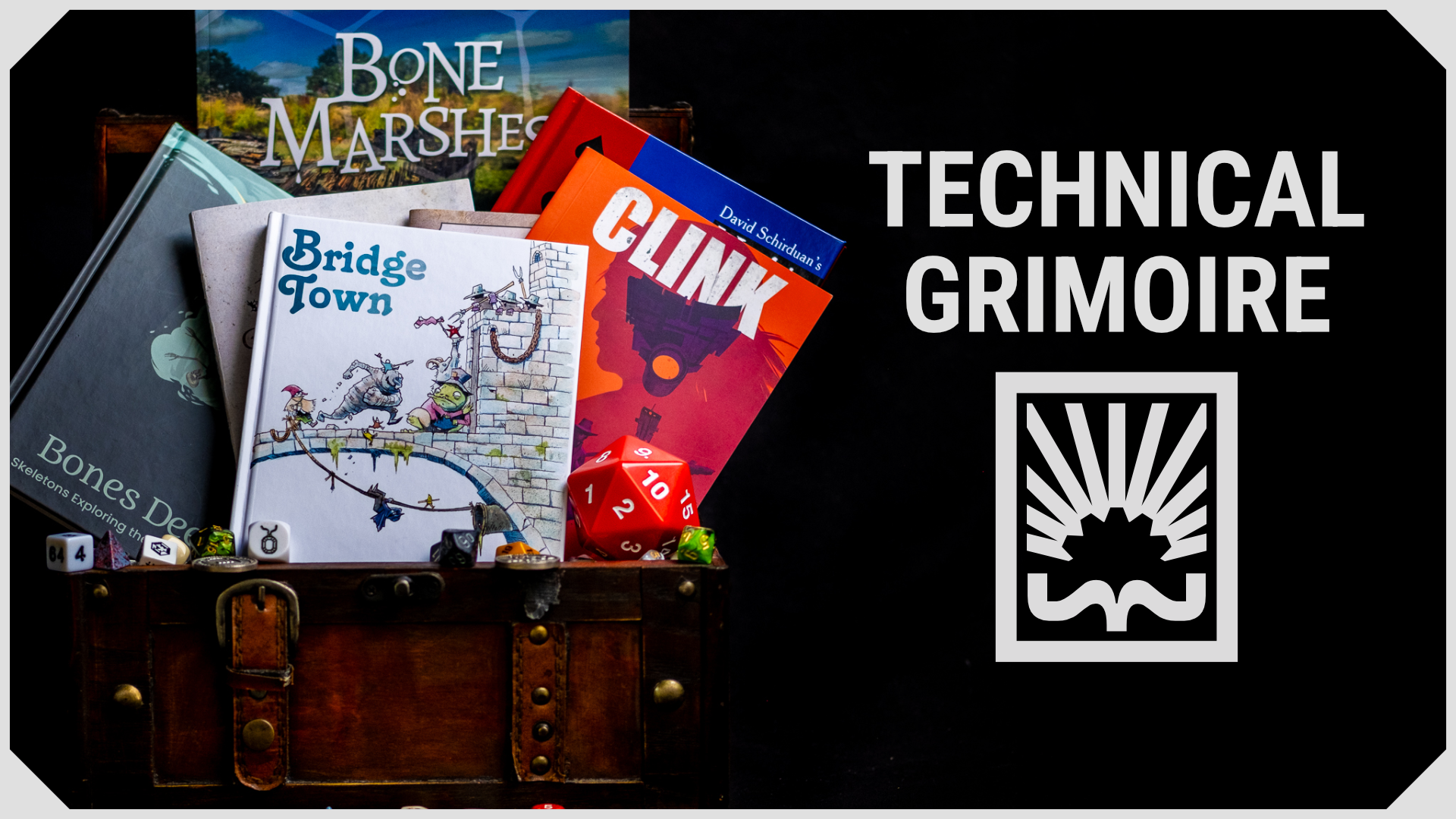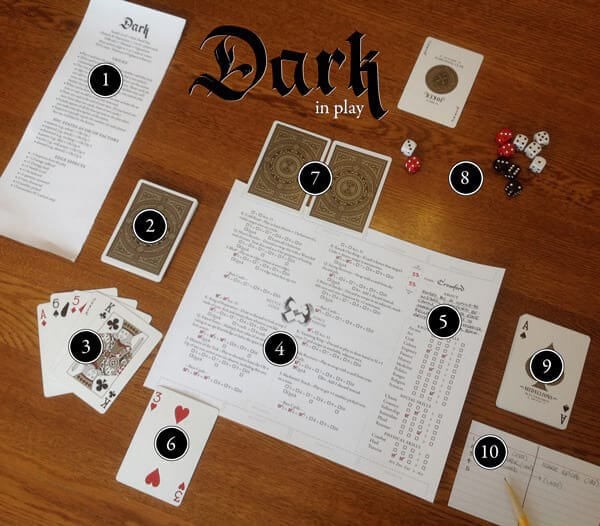It's in the cards....not the dice.

Dice are awesome. I LOVE dice. BUT, sometimes dice can be unfair, obtuse, and even mean. We’ve all had that session where a player just can’t seem to roll well.
I saw and backed the kickstarter for Project Dark by Will Hindmarch, mostly because I was intrigued and fascinated by the concept of replacing the dice with a deck of cards. This immediately struck me as something that made sense, and could lead to some REALLY interesting gameplay strategies. Cards differ from dice in because cards are tactical, not random. It’s exciting to see games designed around these differences and limitations; games like the Simple System.
Tactical, not Random Permalink
Dice are designed to be random. Whether this is true or not depends on how much science you want to get into…or how much philosophy you want to get into. Since I will delve into neither, lets just assume that dice are truly random.
That means that every single die roll is independent of the previous rolls. Theoretically, you could roll perfectly the entire game session. While over time the odds even themselves out, I’ve seen more than one player have a “bad night of rolls” and walk away from the table feeling cheated and hurt.

The cool thing about cards is that they are limited, and only random on the first draw. After that first card, you KNOW you won’t draw it again, not until some kind of re-shuffle happens. This gives cards a certain amount of predictability, which can allow for the control and use of cards to become a kind of strategy.
This introduces a tactical element not unlike that of Poker. Players must be aware of the cards that they’ve played so far in the game, and adapt their strategies to match that. Maybe they’ve been drawing terrible cards an entire combat, and they decide to take a huge risk at the very end, counting on those higher cards to finally turn up. On the other hand, when a player starts out strong, they may need to be more cautious as they use up their killer cards.
Cards on the Table Permalink
Since looking at the mechanics of Dark (which uses a normal deck of playing cards), I LOVE cards as resolution mechanics. I think there is something satisfying and exciting in the act of drawing a card, not unlike the anticipation of a die roll.
Cards also prevent that unfair, cheated feeling that players can get from dice, especially with a smaller deck of cards (anything less than 100), while also allowing for tactical play. All that build-up with cards for my mention of the Simple System.
Currently in its Kickstarter run, the Simple System uses a unique and universal card resolution system. The deeper explanation is in the well-explained kickstarter, youtube videos and book preview included.
The cards themselves have 4 tiers (green, yellow, red, blue), each one having better and better odds of success. Changing card tiers instead of adding modifiers seems like a more reliable and controlled method of determining success, especially when comparing cards against one another.
Oh, yeah, cards are usually played against each other, further relying on the pre-set statistics and odds of the predictability that comes from a deck. Situational modifiers can allow players to rotate cards and achieve different successes; again, all within controlled statistics. You can’t turn a complete failure into a complete success, but you may be able to add a check mark, or remove an X.
The system is supposed to be setting agnostic, with digital templates included for GMs to make custom cards of their own (SO COOL!) and people can share/sell user-generated content. This is incredible, and is very telling that the creator gives the fans and players so much power to create expansions and custom stuff.
There are more detailed rules and explanations on the Kickstarter, which I highly encourage you to check out! As for me, I can’t afford to back it right now, but maybe if some of My Creations net me some tips, I’ll pick it up after the wedding. Until then, I’m super excited to see more card-based rpg systems. They just seem more…fair.